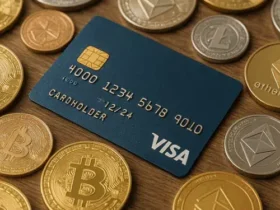Information shared with exchanges can easily be delivered to state agencies.
In the event of hacks or the bankruptcy of cryptocurrency platforms, users can lose their deposits.
There are many users who tend to insist on using centralized exchanges like Binance. They qualify the risks of these platforms by saying that they offer speed and access to a wide variety of assets
But the truth is that behind these apparent advantages, important dangers are hidden that must be taken into account. It is essential to remember that these platforms act as intermediaries that safeguard both the funds and personal data of their clients.
One of the biggest risks of centralized exchanges is the complete loss of control over funds. By depositing cryptocurrencies on platforms like Binance, users they cease to be their true owners. In the event of a hack, an internal error or an arbitrary suspension, the money is no longer available.
Iconic cases that show the risks
An example of the dangers of exchanges is the case of the Binance hack in 2019, being a reminder of how vulnerable even the largest platforms are. On that occasion, 7,000 BTC were lost in an attack that, as CriptoNoticias reported, affected thousands of people for an amount equivalent to about 40 million dollars (USD). However, the company achievement cover losses thanks to its Safe Asset Fund for Users (SAFU, in English).
However, this does not always happen and, when it does, it does not usually happen quickly. Proof of this was the collapse of FTX in November 2022: the exchange led by Sam Bankman-Fried declared insolvency after discovering an $8 billion hole in its balance sheets, resulting from the misuse of client funds. This left millions of users without access to their deposits.
In fact, it was not until May of this year when FTX began refunding its creditors, giving priority in this first batch to those with claims of less than USD 50,000.
Added to this is another equally serious problem: the loss of privacy derived from Know Your Customer (KYC) regulations. This procedure forces users to provide sensitive datasuch as copies of passports and proof of address, to verify your identity. Although it is presented as a measure against illicit activities, in practice exposes people to surveillance and the risk of data theft.
This information is stored on centralized servers, susceptible to being hacked, sold or shared with governments and intelligence agencies. In countries with authoritarian regimes or in conflict zones, this can lead to persecution, censorship and even deadly consequences.
The cost of trusting centralized exchanges, according to testimonials
The following case clearly illustrates the risks of KYC. According to a testimony shared by Ray Youssef, CEO of NoOnes, following the escalation of the conflict between Israel and Palestine, Binance froze the funds of Palestinian users and handed over their personal information to the Israel Defense Forces (IDF).
According to Youssef, this action would have led to the death of a person after the Israeli authorities attacked his home.


The businessman also shared the allegation of a user named Anas Falsharif, who reported on the social network I uploaded all my information, but after two days they came to my house. “This happened after the start of the conflict in Gaza.”
Given what happened, the affected person called for action: “They need to wake up. Look for alternatives.
In 2024, Binance was accused of blocking funds from Palestinians, Lebanese and Syrians under orders from different governments, intensifying the humanitarian crisis in the region. CEO Richard Teng admitted that “a limited number of user accounts” were blocked for alleged criminal activities.
And it is that centralization can open the door to manipulation and abuse of power. Using Binance or any centralized exchange with KYC can be useful for certain specific purposes, but trusting them in the long term can cost privacy, freedom, and money. In this scenario, the principle of not your keys, not your coins (if you don’t have your private key, the coins are not yours) is still a crucial caveat.
This means that if the user does not directly control the private keys to their cryptocurrencies, they do not actually own the assets. For those seeking financial independence, resort to self-custody solutions can offer greater security and peace of mind in the management of your funds.






Leave a Reply